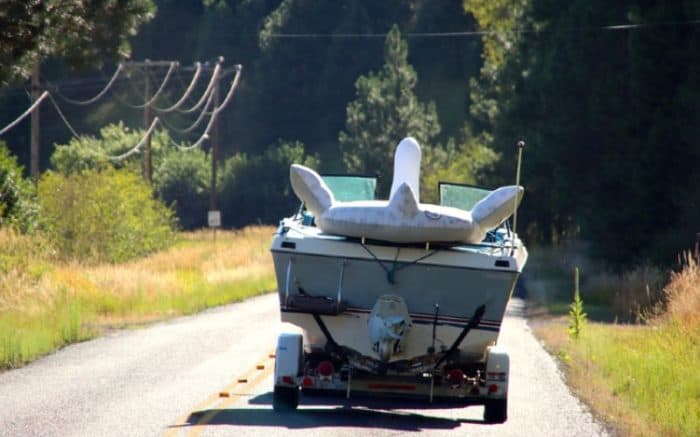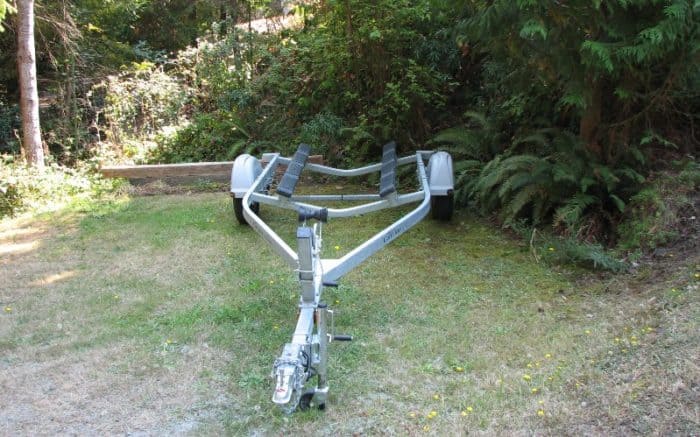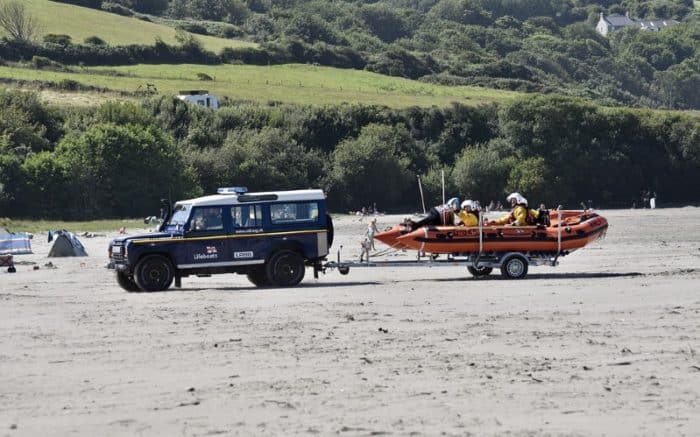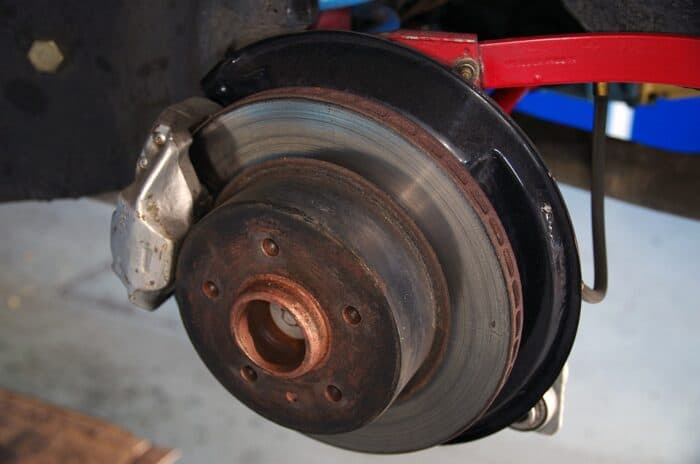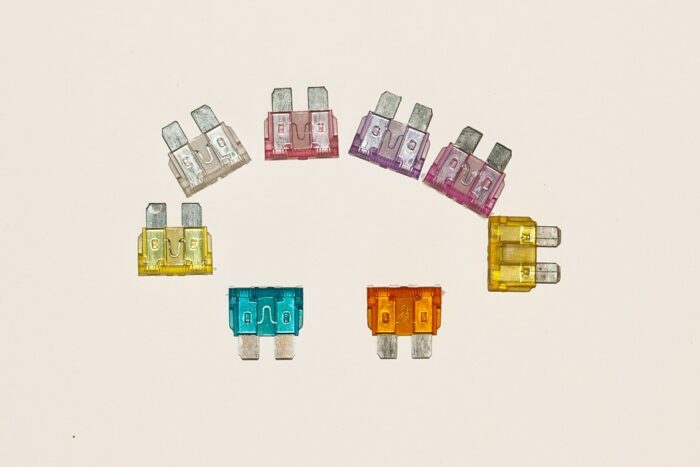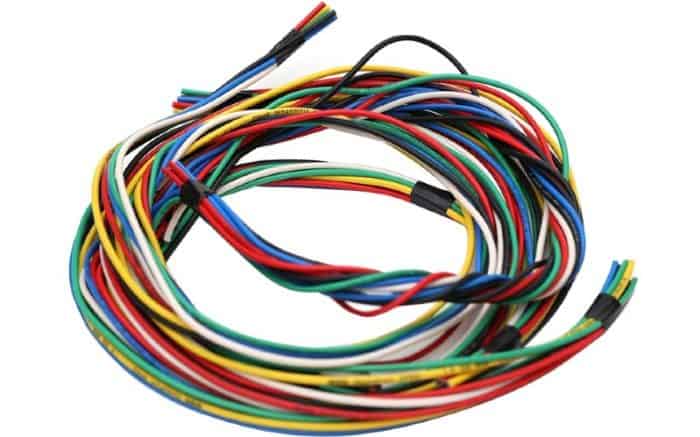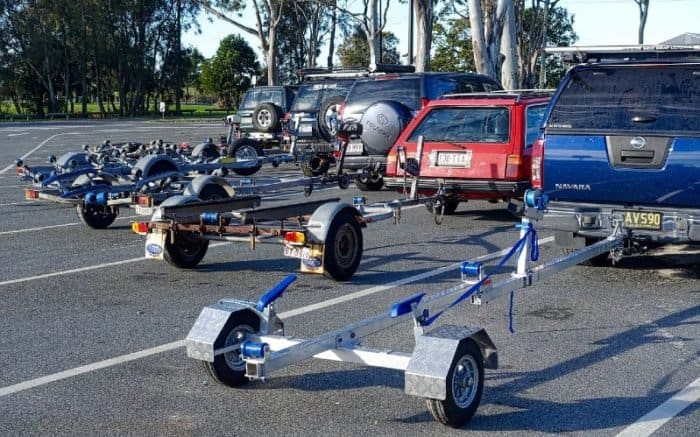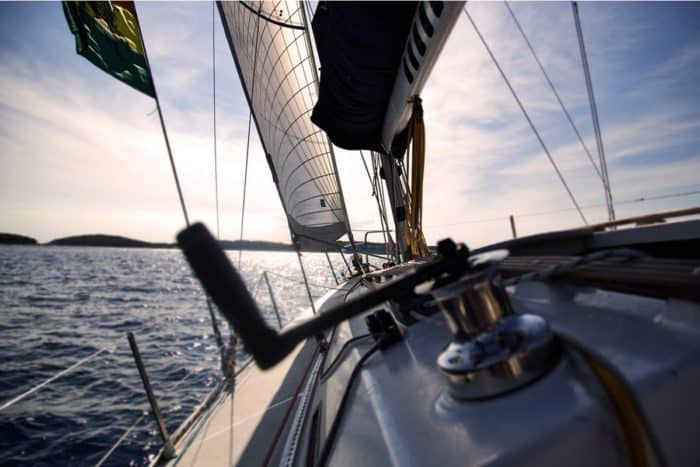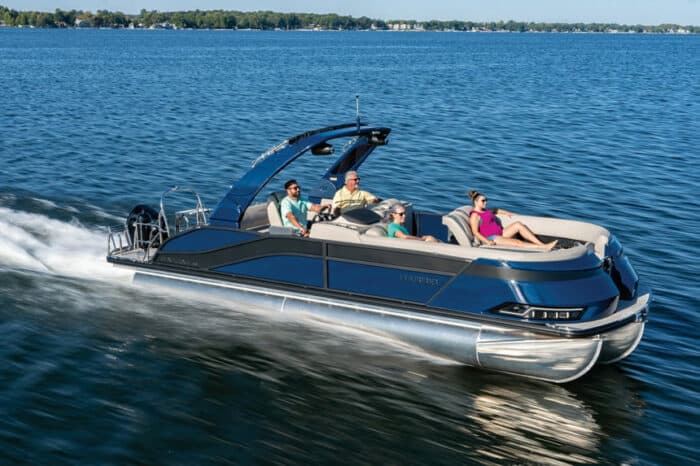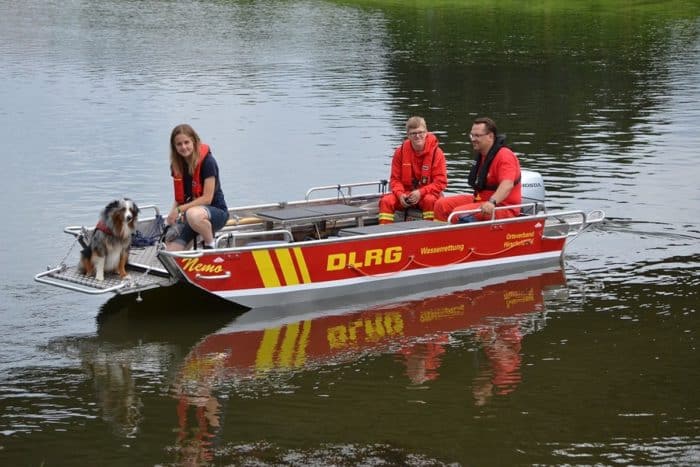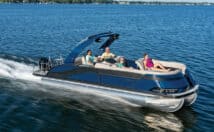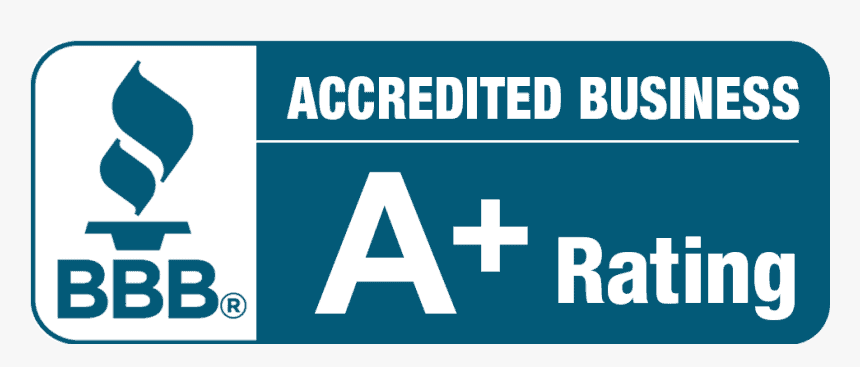How to Release Brakes on a Boat Trailer
Boat trailer brakes can sometimes lock up on you and render the trailer immovable. Releasing locked brakes can depend on why exactly they’re locked in the first place but if the reason relates in some way to an issue with your breakaway switch cable, you may be able to get the brakes to release by disconnecting and reconnecting that cable. If it’s too damaged to work properly then you may need to take more drastic measures by cutting the wire in the breakaway switch that connects to the battery and/or the circuit. You need to be careful doing this, however, and not cut the trailer’s brake wire itself.
If you’re curious how your boat trailer surge brakes are supposed to work, we have a guide that explains them for you as well. Most boat trailer brakes are hydraulic surge brakes but some are electric brakes as they can operate more safely in water these days with improvements in designs.
Releasing Trailer Brakes: The Reconnection Method
If you find your trailer unable to move forward or backward all of a sudden, you should try disconnecting and reconnecting your breakaway switch first and foremost. Check the pin and make sure it’s clean and undamaged. Sometimes they can get broken, bent or warped so they don’t fit properly into the housing. When that happens it can’t do its job any longer.. If it looks good, reconnect and see if that makes a difference. It could have just come loose somehow which caused the brakes to engage.
When you disconnect and reconnect, what you’re doing is breaking the circuit which should cause the brakes to release. This should fix most problems right away but that’s not a guarantee. If it doesn’t work, you have a more serious wiring issue that’s preventing the circuit from breaking so we’ll need to go a little more in-depth.
Sometimes the chain and breakaway switch can accidentally breakaway because most boat owners will, at some point, forget that it’s connected and try to drive the tow vehicle away or it can get snagged on random things. If yours has been too badly damaged to just reconnect it then you may need to buy a new one. They aren’t too expensive but it can be a bit of an inconvenience.
Releasing Trailer Brakes: Cutting the Wire
This is obviously a more extreme method of fixing the problem because none of us want to cut any wires, obviously. I’d only recommend this if you’re confident you know what you’re doing and also your trailer is somewhere you can store it for a while. If your brakes locked up on the highway, for instance, this might not be the place you want to be cutting wires.
Your emergency breakaway system should have three wires that run from the battery lead to the trailer. There should be a white ground wire, a blue electric brake trailer feed, and a red or black battery lead. Do not cut the red/black wire. But what you could do, if the brakes refuse to release, is cut the grounding white wire or the blue wire. Only cut these wires from the breakaway switch, not the wires in the trailer themselves.
Cutting this wire does what should have happened in the first step when you unplugged the switch in the first case and breaks the circuit. At this point the brakes cannot have any power going to them any longer and should be forced to release as a result.
Alternate Methods of Releasing Trailer Brakes
The first two methods are the almost guaranteed methods for releasing the trailer brakes but there are also some alternate tricks that may or may not work for you. These ones are a mixed bag and depend on a number of variables like the kind of trailer you have, the kind of brakes it uses and the condition of them. Give these a try and maybe you’ll have some success.
Reverse the Tow Vehicle
Believe it or not, sometimes the method of releasing the brakes on some models of trailers is simply a matter of backing up. Don’t ask me why some trailers are designed this way because I don’t know. But I have heard some trailer owners point out that they can’t move a trailer forward unless they begin by backing up a foot or two at first and then moving forward. This could be seriously inconvenient depending on how your trailer is positioned at first so I’m not sure what the benefit might be for brakes designed in this fashion, and maybe it’s just the result of a short, but it’s been reported by more than one trailer owner so give it a try. Put the tow vehicle in reverse, ease back just a couple of feet, then put it in gear and move forward
Mechanical Failure: Corroded Disc Brakes
If your trailer has been sitting for a while, your brakes may have become corroded and the brake pads are stuck to the brake drum. This will bind up your brakes and render them all but useless until the situation is addressed. This problem requires some work to fix as you’ll have to take the tires off and actually get to the brakes themselves. It’s possible you can clean them up and use them still but it’s just as likely that if the corrosion is so bad they’re locked up that you’ll need to remove the corroded old brakes and replace them with new ones if they’re too badly corroded.
In addition, your drums could be badly misaligned, maybe as a result of an accident or a serious pothole which, when a boat is weighing your trailer down, can really wrench your wheels and brakes out of alignment, destroying your hubs and more. If this is the case then you may need to have some parts replaced to get them to work properly again.
Fuse Issues
Sometimes there can be an issue with your tow vehicle and not the trailer itself that causes the brakes to seize up on you. Put your tow vehicle in reverse and see if the lights on your trailer to indicate you’re backing up come on. If the reverse lights do not light up, then you may have an issue with a fuse in your tow vehicle and the trailer is not disengaging the brakes as a result.
Try swapping out the fuse in your tow vehicle, and you may need to refer to your owner’s manual or a guide on the internet to figure out which fuse to swap and also where it’s located in your vehicle, then see how that works. If the reverse lights come on you may not be able to properly release the brakes.
Wiring Issues
Check the wiring from the tow vehicle all the way back through the trailer. Frayed and exposed wires may cause grounding issues or electrical shorts. This can happen around the lever or in the trailer tongue where parts can get squished during the process of connecting and disconnecting your tow vehicle. Replace stripped, frayed or badly kinked wires and hopefully that will get your brakes to release once more.
Check Brake Fluid
In most cases an issue with your brake fluid will have the opposite effect. No brake fluid typically means no pressure and therefore no braking power when your surge brakes activate. But it’s possible that a blockage in the line could maybe cause a pressure spike that can’t be released through normal means. If that happens you can try to inspect the line by disconnecting one end of the line and having an assistant manually pump the master cylinder by using the lever to see if anything happens. If the line is blocked then you won’t be able to get fluid to continue flowing so you’ll likely need to have the lines clear professionally and new fluid added to maintain pressure and keep your brakes working properly.
The Bottom Line
There are a handful of reasons that the surge brakes on a boat trailer can seize up on you and not respond when you press that brake pedal. Replacing the pin in your breakaway switch should fix this problem in many cases or, if it’s an electrical issue, then cutting the wire may also fix the problem for you. This should work in the majority of cases with boat trailers. If it’s a mechanical issue with your brake components rather than an electrical issue you may need to take the step of replacing your brake system entirely, swapping out some parts or cleaning your brake lines. On the simpler end of the scale you may need to just replace a fuse in your tow vehicle or even try reversing the vehicle to see if that makes the brakes disengage. As always, stay safe and have fun.
Categories: Boats
